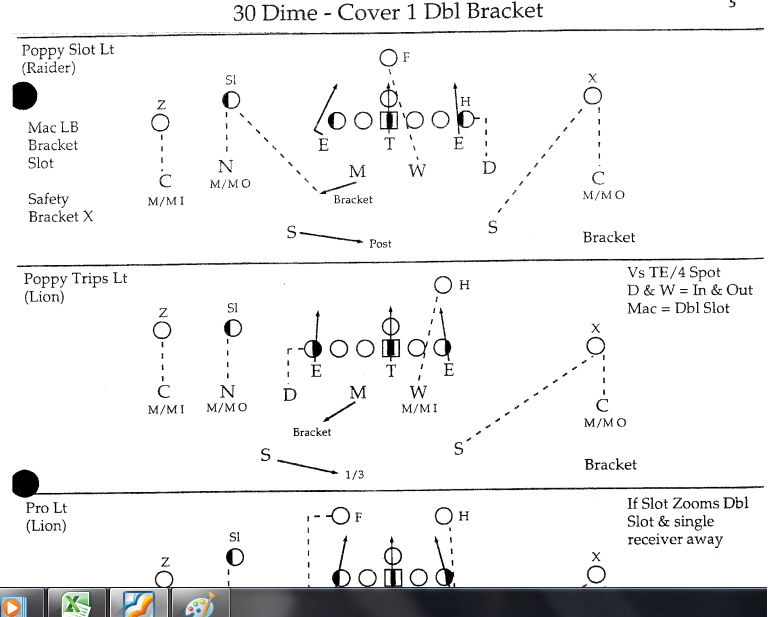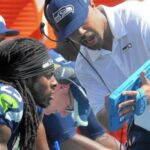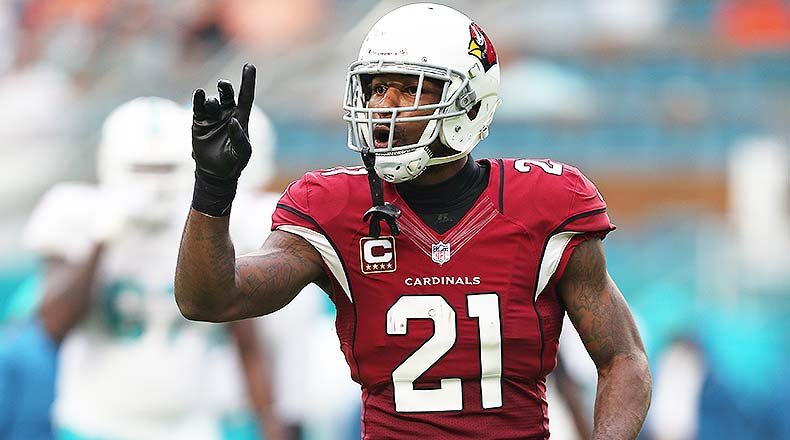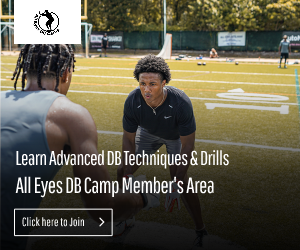The playbook is the foundation of a team’s defensive strategy and coordination on the field. Whether you’re a seasoned athlete or new to the game, learning your defensive playbook efficiently is essential for success. In this article, we will take a look at some of the best ways to help you grasp the intricacies of a playbook, from understanding terminology to breaking down complex schemes. By implementing these strategies, you can boost your football IQ and become a more effective player.
1 -Understand the Terminology
A defensive playbook is filled with unique terminology that can be overwhelming for newcomers. Start by familiarizing yourself with the key terms used in your team’s playbook. Study the various positions, offensive and defensive formations, and play call signals. To reinforce your understanding, consider creating flashcards or using online resources to quiz yourself regularly. Building a solid foundation of football jargon will help you quickly interpret and execute plays during high-pressure game situations. Repetition is key in this instance. Taking 5-15 minutes on a daily basis to go over things helps to ingrain it into your brain. Doing this beats one hour or more cram sessions. During those type sessions, more information gets forgotten than you would like. Do a daily review to help the information stick better.
2 – Visualize the Plays
Mental imagery plays a crucial role in learning a football playbook. Visualize each play in your mind, imagining yourself executing it flawlessly. Picture the movements, positions, and timing involved in every coverage. Watching game footage or highlights can also enhance your visualization skills. By repeatedly visualizing the plays, you will develop muscle memory and improve your on-field decision-making. We all learn in different ways and it also takes us a while to truly understand how we learn. In the interim, use all of your senses to grasp an understanding of your playbook. This means, visualizing is important. If you have the luxury of seeing defenses run on film then by all means use that in conjunction with seeing the defenses being shown in the playbook.
3 – Break Down the Playbook
A playbook can be overwhelming, with numerous coverages, techniques, and checks. To make the process more manageable, break down the playbook into smaller sections. Focus on learning a few coverages at a time, understanding their purpose and your specific responsibilities within them. Take notes and draw diagrams to aid your comprehension. Gradually build upon your knowledge as you master each section, creating a solid foundation for learning more complex coverages. After you have learned your responsibilities, move to understanding those of the people around you. Doing this aids in you having a greater understanding of what you need to do. Eventually you will see how it all fits together like a puzzle. Every defense has a philosophy and by studying the responsibility of each member of the defense you gain an understanding of that philosophy. Once you have that understanding, moving around on the field becomes easier for you.
4 – Seek Guidance and Repetition
Utilize the expertise of coaches, teammates, and older players to gain further insights into the playbook. Seek clarification whenever needed and ask questions to ensure you fully comprehend your role in each play. Engage in team walkthroughs, where you can practice the plays at a slower pace and receive immediate feedback. Additionally, take advantage of film study sessions to analyze successful plays and identify areas for improvement. One of the biggest areas where new / young players struggle is in asking questions. If you don’t understand something, make the effort to go ask someone. Determine the best time to ask questions and then by all means, go and ask. If you can not find the answers in the playbook, in them meeting or in film study, don’t just go on without knowing. This will definitely negatively affect your performance and either prevent you from getting playing time or being effective when you are out on the field.
5 – Physical Repetition and Simulation
While mental preparation is crucial, physical repetition is equally important. Practice the plays on the field, focusing on proper footwork, timing, and execution. Replicate game-like scenarios by practicing at full speed and under simulated pressure. This will enhance your muscle memory and build the necessary instincts to execute plays effectively during actual games. Most of this will be done during practice either through team period, 7-on-7 or walk throughs. However, there is nothing to stop you from doing these things on your own before or after practice. When you are new, you often are not getting very many reps. You can up your understanding by taking those extra reps on your own. Stay out on the field to rehearse your drops and envision your teammates taking theirs. Visualize formations and walk yourself through the steps that are required. On the surface, this may seem corny. However, no one will be laughing at you when you make all county, all state, all American or All pro.
6 – Engage in Film Study
Film study is an invaluable tool for learning a football playbook. Analyze game footage to understand how coverage unfold, the reactions of opposing teams, and successful strategies employed by your team. Observe the performance of players in your position and learn from their techniques and decision-making. Film study allows you to identify patterns, tendencies, and areas for improvement, enabling you to make better-informed decisions on the field. This is typically a difficult part for young players. There are just so many distractions these days to keep you away from jumping on Hudl to acquire the knowledge. However, if you are serious about being the best, discipline and sacrifice are your best friends. Put aside the time to do the film study because as we know our eyes are very important. Being able to see what’s on the page come to life on film will amp up your understanding of the play book in a major way.
7 – Use Online Aids and Watch Games
In this Internet / social media era, there is simply so much information available easily. Don’t take this for granted. Sometimes there are videos on a platform like YouTube that can explain a defense or coverage your team is running better than your playbook does. Additionally, tools like the All Eyes DB Camp Member’s Area are there to give you a full understanding of defensive football and playing pass coverage. The same way you may look up an Algebra topic for help is the same way you can get a better understanding of quarters coverage. Another underrated aspect of learning for new players is simply watching football games on TV. Watch regular games with a more analytical eye. Instead of looking to see who has the dope cleats or spending too much time marveling over a dark shield a player is wearing, take note of how the defense is moving. Listen to the analyst talking about the game and you will pick up clues about how things work. Watch enough games and you will find yourself understanding things in your own playbook quicker.
Learning a football playbook is a multifaceted process that requires a combination of mental and physical preparation. By understanding the terminology, visualizing plays, breaking down the playbook, seeking guidance, engaging in physical repetition, and studying film, you can become a master of your team’s playbook. These methods will not only enhance your performance but also contribute to your overall football knowledge, making you a more versatile and valuable player on the gridiron. Ultimately, coaches play the players they trust and the guys they trust the most are the ones who know what they are supposed to be doing on the field.
Chad Wilson is the owner of All Eyes DB Camp and author of "101 DB Tips". He played college football at the University of Miami and briefly in the NFL for the Seattle Seahawks. Over his 15 year high school football coaching career, he tutored over a dozen Division I defensive backs and as a trainer has worked with NFL All Pros, first round draft picks, college football All Americans and Top 10 ranked high school football prospects.









